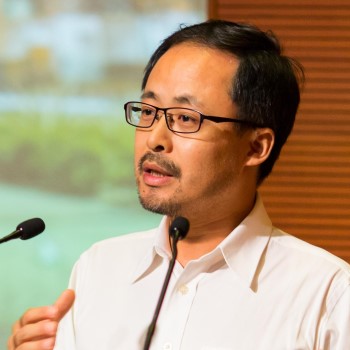Stand Out in a Competitive Economy with the SMU Psychology, Political Science and Sociology Major
The interdisciplinary Psychology, Political Science and Sociology (PPS) major at SMU aims to equip students with valuable skills for today's job market. By blending insights from these disciplines, students learn various skills such as critical thinking and problem-solving skills. For SMU alumnus Jerry Lewis Ong, he has leveraged these competencies across his career in the public, private and non-profit sectors. The PPS major has also allowed SMU alumna Tara Kishin to explore different roles.
A Psychology, Political Science and Sociology (PPS) major is a sought-after individual for many reasons; they can analyse human behaviour and understand social interactions on different levels, while possessing an in-depth knowledge of policies, international relations, human behaviour, and societal dynamics. These skills are essential across multiple industries, making a social sciences graduate a valuable asset in a broad range of organisations.
Moreover, social science graduates specialising in interdisciplinary PPS paths are often seen as confident and articulate individuals, showing a strong ability to adapt and thrive in any situation. It’s no surprise then that those who majored in PPS enjoy employability across multiple industries with careers spanning both the public and private sectors, in organisations as diverse as the government, tech startups and consulting practices.
The Bachelor of Social Science programme, offered by the SMU School of Social Sciences (SOSS), in particular, delivers a broad-based undergraduate education centered on the disciplines of PPS. Combining these disciplines provides a holistic, multidisciplinary, and integrated approach to the study of the social sciences and develops the tools and frameworks applicable to careers in the human services fields, education, management, and other analytical and social-intensive professions.
“Our graduates are well prepared to become high-functioning professionals in this rapidly evolving, globally-connected, and increasingly complex world,” says SMU SOSS Associate Professor of Sociology Forrest Zhang.

“They can apply their knowledge in intercultural communication when dealing with global partners; knowledge in socioeconomic differentiation in analysing market segment; knowledge in cultural symbolism when designing and branding products; knowledge in international politics when preparing entry into new markets; and knowledge in personality types and cognitive and emotional processes when interacting with clients.”
A force for good
Jerry Lewis Ong, SMU Bachelor in Social Science (PPS) alumnus (Class of 2013), for example, had leveraged the competencies accrued through the programme across careers in the public, private and non-profit sectors. Currently Assistant Vice President, Community Strategy & Impact Measurement at Temasek, he leads the introduction and implementation of impact measurement framework across the investment company’s philanthropic ecosystem.

Today, private philanthropic organisations are increasingly focusing their efforts on impact measurement to demonstrate whether their interventions or activities are creating positive social outcomes. Jerry’s role at Temasek is to analyse and manage the impact performance and results of community programmes driven by its non-profit entities.
“I learnt about the complex social world we live in through the Psychology, Political Science and Sociology programme,” explains Jerry, who previously worked at humanitarian aid organisation Save the Children as a Senior Field Coordinator in Thailand, supported project implementation for the vulnerable communities department at Interpol, and served as a Manager for Global Community Impact at Johnson & Johnson.
“A big part of my education was also learning about how to navigate and make sense of the uncertain and disruptive world. This has given me an edge to stay ahead and relevant in a competitive economy.”
Unlocking limitless potential
Indeed, Prof Zhang shares that the PPS programme equips students with skills in critical thinking, information processing, conceptual analysis, and problem-solving. Such competencies prepare them for a wide spectrum of careers, spanning from civil service to social sectors, academia, entrepreneurship, and the corporate world. For example, his students have become commodity traders after learning about the global food regime and agricultural commodities trade at SOSS, or even found success as advertising copywriters at international agencies.
Another example of a student who has embarked upon an interesting career pathway is Tara Kishin, who graduated in 2015. She is now a Global Regulatory Escalations Specialist at Meta (formerly Facebook), where she investigates and resolves reports from governments and non-governmental organisations.

“I always thought that I wanted to be a lawyer but the PPS major has given me access to a career I didn’t envision,” says Tara.
“It was not part of my original plan but I have built a career that I think is truly right for me. The PPS major allowed me to keep my options open and explore different types of roles. I also believe myself to be more confident of my opinions and thoughts through the multiple seminars we had on often difficult topics.”
As for Jerry, the decision to pursue the PPS major arose from a community service trip to Cambodia prior to enrolling into university. There, he had the privilege to interact with communities in rural areas and support them in the building of water wells, latrines and houses.
The experience highlighted the shocking difference in the level of development between Cambodia and Singapore, and triggered an “emotional realisation” in him. Following the trip, Jerry was determined to build his skills and understanding in areas such as human rights, poverty and inequality, so as to lead and drive social change upon graduation.
“The PPS major was a perfect fit for my learning aspiration and it was a natural choice for me,” adds Jerry.
Humanising the digital revolution
Ultimately, social sciences are an integral part of society and will remain so in the future. New technologies like AI, blockchain or digital transformation inevitably bring about changes to how we interact with one another as well as within organisations. As such, the application of social science expertise enables us to adapt and thrive in this fast-changing world. Conversely, technology can also further unlock the potential of social science research, and create better systems, policies and networks to achieve a better future.

“The rapid digitalisation in our current world only increases the demand for social sciences graduates.”
Forrest Zhang
Associate Professor of Sociology
“The rapid digitalisation in our current world only increases the demand for social sciences graduates,” notes Prof Zhang.
“My advice is to have a spirit of self-discovery. This means stepping out of your comfort zone, trying out new things without worrying about possible failures. Your career path may lie in a place that you never thought existed."
Ready to step out of your comfort zone with the SMU Psychology, Political Science and Sociology major? Find out more here.





